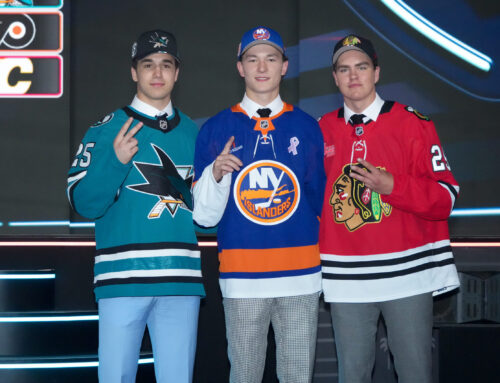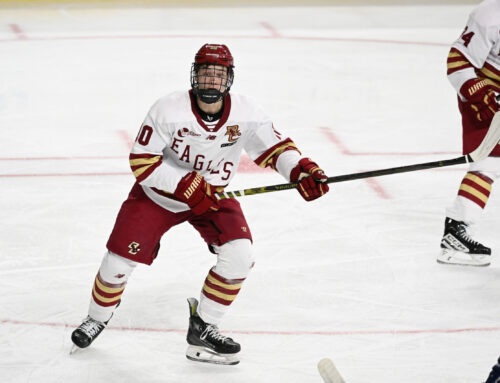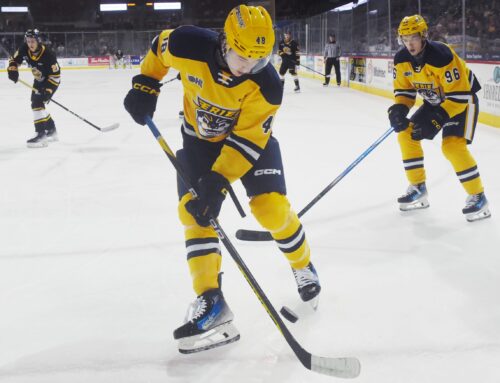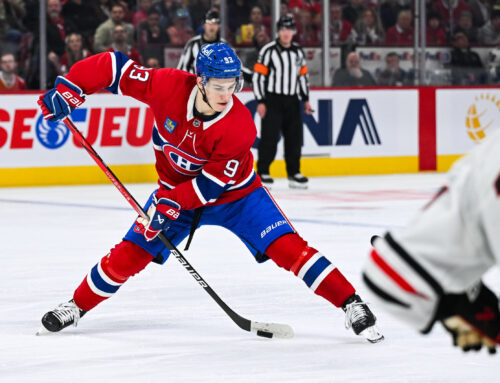
If Steve Downie can make it in the NHL and be a valuable contributor to a team – then there is hope for any prospect who has been involved in what has become known as an "off-ice incident." Often, the term "off-ice incident" is a euphemism for a pretty serious offence. In many cases, though, the ominous sound of the term doesn't fairly reflect what in many cases is a minor transgression.
When you're evaluating a prospect, be careful to avoid the trap of devaluing a prospect just because they've been involved in an off-ice incident.
I almost had a chance to grab Detroit Red Wings prospect Brendan Smith in a trade recently when his owner was about to let him go unprotected. Smith is Detroit's best defense prospect and with Nicklas Lidstrom (40) and Brian Rafalski pushing (37 in a few days) there is a golden opportunity for Smith to step into a productive lineup in a couple of seasons.
Smith was involved in an off-ice incident in 2008 that involved a driving under the influence charge. This past spring, he faced a misdemeanour assault charge. The fact that Smith has had two incidents might make you think he's a bad apple, but I don't worry too much about the second incident. The first one was more serious, in my opinion, but it's a good lesson for him. As long as he doesn't do it again, you forget it and move on.
If you want to exclude a prospect from your fantasy team because he got involved in a dust-up at a frat house, then you'll be excluding an awful lot of players from your team. NHL general managers know – often because they used to be young, testosterone-driven men themselves — that boys will be boys and chalk it up to immaturity.
Another example of off-ice incidents getting more attention than they deserve is in the case of Kyle Palmieri, the Anaheim Ducks first-rounder. Palmieri was kicked off the US NTDP program in a tournament in Sweden. There were others, too and there was no information given about what the players did. The U.S. NTDP has strict rules, as do many U.S. college programs, so it doesn't take much for a kid to break the rules.
If Palmieri, then underage, happened to have a girl in his room after curfew, and say had a couple of beers with him, this would get him booted off the team. Seriously, are you going to hold it against the kid if he does that? I think most of us would do the same as Palmieri if given the same opportunity. There was a report that the only transgression Palmieri was guilty of was that he refused to rat out some teammates who did break team rules.
Palmieri was involved in another off-ice incident this past spring in which he was caught underage drinking at Notre Dame university. That's no big deal as most of us are guilty of doing the same. For the record, folks, yours truly got drunk for the first time at the tender age of 16.
The part that concerned me a little bit was the report that he tried to run when confronted by a police officer. Not the smartest thing to do, but he was drunk.
In the CHL, players rarely get kicked off teams for transgressions that would get them booted off the U.S. NTDP squad or a college team. Does that mean the CHL is a haven for miscreants? No, it just means that CHL teams have similar standards to NHL teams.
And since the NHL is where these players will end up – hopefully – fantasy GMs should use the same standards as NHL general managers.
If Bob Probert, may he rest in peace, can carve out a 16-year career in the NHL with all the off-ice issues he had, then that should prove to you that what a player does on the ice is the only thing that matters in the eyes of NHL GMs.
That's why there is still hope for a player like Kirill Kabanov. You can be sure that the Islanders are ticked off at him, but unless they become convinced that what he's doing off the ice is going to affect what he can do on the ice, they will give him chance after chance to prove himself.





 MTL
MTL TOR
TOR BOS
BOS OTT
OTT SEA
SEA DET
DET
 ANA
ANA PHI
PHI CAR
CAR
